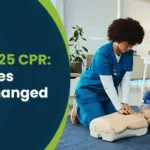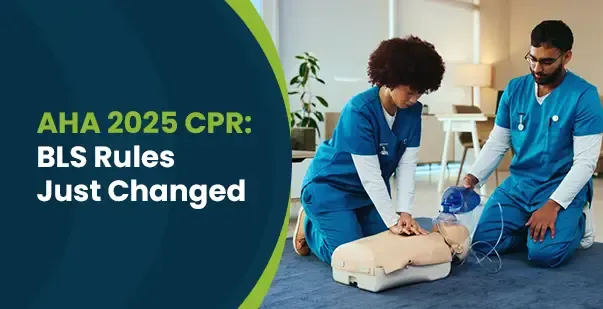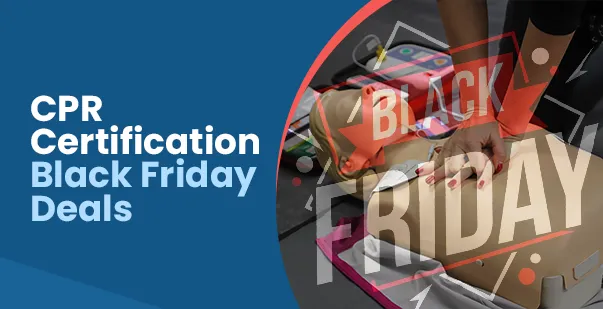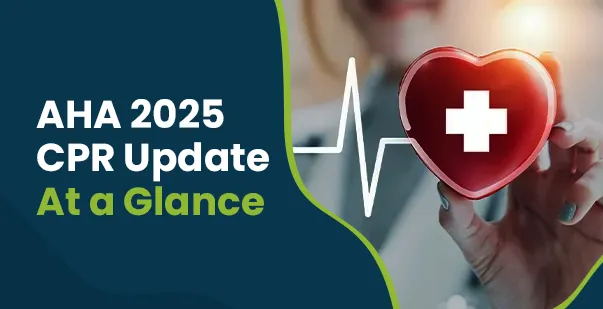CPR manikins or dummies are crucial for effective CPR training. The quality of practice can make a significant difference in people’s lives connected with different job roles. But with so many options available, how do you select the one that fits your needs? According to a study, practicing CPR on realistic manikins improves retention of life-saving skills by up to 30%. This shows that the right training tool isn’t just a preference. It is essential for mastering the technique of resuscitation.
To select the ideal CPR manikin or dummy it is important to find out features of durability, realism and feedback options. Read this blog, to choose an ideal CPR manikin, best fitted for your training.
Type of CPR Manikins
When it comes to CPR training, manikins are not created equal. Each type of CPR dummy serves a unique purpose. They are designed to mimic specific age groups or skill levels. Choosing the right one can make your training more effective and realistic.
In this overview, we’ll explore the different types of CPR manikins and what makes each of them essential.
- Adult Manikins Ideal for practicing on adult-sized bodies, these dummies focus on proper chest compression depth, hand placement, and rescue breathing techniques.
- Child Manikins These are scaled down in size and allow learners to practice compressions and breaths that suit children’s smaller bodies, offering a more realistic training experience.
- Infant Manikins Designed for newborns and infants, these manikins help learners perfect gentle compressions and rescue breaths. This makes them important for pediatric CPR training.
- AED-Compatible Manikins These dummies use AED pads for training on how to use automated external defibrillators along with CPR.
- Advanced Feedback Manikins Equipped with sensors and technology, these provide real-time feedback on compressions, breaths, and hand positioning, enhancing training effectiveness.
How Does Realistic Features Enhance Knowledge and Skill Retention?
When learning CPR, realistic training is important. Using manikins with realistic features enhances both knowledge retention and skill development. According to research, trainees who practice on realistic manikins are more confident and better prepared for real-life situations. But how exactly do these features impact your learning?
- Accurate Anatomy Manikins with lifelike anatomy, such as accurate ribcage and chest rise simulation, help learners understand the proper hand placement and compression depth.
- Responsive Feedback Manikins that give feedback, like clicks or lights, ensure correct compression force, improving the quality of CPR practice.
- Realistic Airway Management Dummies that simulate airway blockages and proper ventilation allow trainees to experience real-life scenarios, ensuring effective rescue breathing.
- Natural Chest Resistance Simulating the resistance felt during real CPR helps learners get accustomed to the physical effort required for successful chest compressions.
- Lifelike Skin and Texture Realistic skin and body textures help users develop a more intuitive feel for real-life emergencies, making the transition from practice to reality smoother.
- Weight and Size Accuracy Realistic weight and dimensions of adult, child, and infant manikins provide an authentic experience, preparing learners for real-world situations.
The Importance of Real Time Feedback in Manikin Devices
Real-time feedback during CPR training can be a game-changer. Manikins equipped with feedback devices provide immediate insights into compression depth, speed, and hand placement.This helps learners adjust their technique on the spot. According to studies, real-time feedback improves CPR performance by up to 50%, which directly increases the chances of success in real emergencies. So, why is this feedback so crucial?
- Correct Compression Depth Feedback devices alert users when compressions are too shallow or too deep. This ensures optimal chest compressions for maximum effectiveness.
- Improved Compression Rate Learners can see if their compression rate meets the recommended 100-120 compressions per minute, helping maintain a consistent rhythm.
- Proper Hand Placement Immediate corrections for incorrect hand placement prevent learners from developing bad habits, ensuring they apply pressure in the right spot.
- Enhanced Confidence Instant feedback boosts confidence, as trainees know they are performing the steps correctly, making them more prepared for real-life emergencies.
- Reduced Dependency With automated feedback, learners don’t have to rely solely on the instructor’s observation, allowing for more efficient practice sessions.
- Better Skill Retention Practicing with feedback helps lock correct techniques, leading to improved skill retention over time.
How can AED Training Dummies Improve Emergency Response Skills?
Training with dummies specifically designed for AED (Automated External Defibrillator) use can significantly boost your emergency response skills. These manikins allow you to practice the seamless integration of CPR with AED application, mimicking real-life scenarios where every second counts.
- Simulates Realistic Scenarios You can practice both CPR and AED use in a realistic sequence, making the training feel closer to an actual emergency.
- Correct Pad Placement These dummies guide you on the proper placement of AED pads, ensuring effective shock delivery when needed.
- Hands-on Defibrillator Use Practicing with AED-compatible dummies allows you to familiarize yourself with defibrillator controls and prompts, boosting your reaction time in real events.
- Improves Coordination Practicing AED application alongside CPR enhances your ability to coordinate both life-saving techniques under pressure.
- Builds Confidence in AED Use Frequent practice with AEDs reduces hesitation during emergencies, ensuring quick, decisive action when it matters most.
- Mimics Chest Movement During Shock AED-compatible manikins simulate chest reactions to shocks, preparing you for how a real body might respond.
Cost vs. Features: Balancing Your Budget and Training Needs
When choosing a CPR manikin, it’s important to find the right balance between cost and the features. Investing in manikins with advanced features can significantly enhance learning outcomes. However, not every training session requires the most high-tech dummy. The key is to assess your specific training goals and find a model that provides the best value within your budget.
Here’s how you can balance cost and features:
- Basic Models for Fundamental Skills If you’re focused on learning basic CPR skills, affordable manikins with minimal features might be all you need for hands-on practice.
- Advanced Feedback Systems for Precision Investing in manikins with real-time feedback systems can help you master compression depth, rate, and hand placement, which is great for in-depth training programs.
- Durability for Long-Term Use If you plan on using the manikin frequently or in group sessions, consider spending more on a durable model that can withstand repeated use.
- AED Compatibility for Comprehensive Training Higher-priced manikins that support AED training add realism and prepare you for real-life emergency response.
- Customizable Features Some mid-range models offer interchangeable parts (like child or infant attachments), giving you more versatility without buying multiple dummies.
- Cost-Effective Multipacks For large groups or classroom settings, purchasing manikins in bulk can provide significant savings while ensuring everyone gets hands-on experience.
Read More: How to correctly perform the Heimlich maneuver?
Are Easy-To-Clean Manikins Sanitary?
In CPR training, maintaining cleanliness is essential. It is especially important when multiple participants are using the same manikin. Easy-to-clean CPR dummies help uphold sanitary conditions. This minimizes the risk of germs and infections transmission between learners.
Easy to clean manikins are important in large group settings or frequent training sessions, where health and hygiene need to be top priorities.
Quick Sanitation Between Uses Manikins with smooth, wipeable surfaces allow for fast cleaning between users, reducing downtime and maintaining hygiene.
Replaceable or Washable Parts Features like removable face shields and airways can be easily swapped out or sanitized, preventing cross-contamination during training.
Durable Materials Manikins made with durable, non-porous materials resist the buildup of germs, making them easier to disinfect thoroughly after each session.
Minimizes Germ Spread Properly cleaned manikins reduce the risk of transmitting infections between trainees, ensuring a safer training experience.
Meets Health Standards Easy-to-clean dummies help training facilities comply with health and safety regulations, especially in healthcare or school environments.
Extended Lifespan of Equipment Regular cleaning extends the lifespan of your manikins, keeping them in good condition for longer while maintaining safety.
What are the Benefits of Using Basic and Advanced Manikin?
Using both basic and advanced manikins in CPR training offers a well-rounded approach to mastering life-saving techniques. While basic manikins are great for building foundational skills, advanced manikins with high-tech features can take your training to the next level.
- Foundational Skills: Basic manikins help trainees focus on mastering the core skills of CPR, such as chest compressions and rescue breaths, without distractions.
- Affordable: Basic models are cost-effective and perfect for large training groups, ensuring that everyone gets hands-on practice.
- Realistic Feedback: Advanced dummies provide real-time feedback on compression depth, rate, and hand placement, enhancing precision.
- Building Confidence: Starting with basic manikins helps build confidence, while advanced manikins push learners to perfect their technique through detailed feedback.
- Ideal for Diverse Training: Advanced manikins offer additional features like AED compatibility and airway management, giving trainees exposure to complex, real-life scenarios.
- Progressive Learning: The combination of both types allows learners to gradually progress from simple CPR skills to more advanced techniques, ensuring comprehensive training.
Read More: How To Replace Your Lost CPR Card
Choose the Right Manikin For An Efficient Training
Choosing the right CPR manikins is crucial for effective and realistic training. Whether you’re looking for a basic model to teach foundational skills or an advanced manikin with real-time feedback and AED compatibility, the key is to align the features with your specific training needs and budget.
By investing in the right CPR dummy, you get an enhanced learning experience. Your confidence is also boosted and you stay for real-life emergencies. Ultimately, the right manikin is a valuable tool that ensures both students and professionals are equipped to save lives when it matters most.









